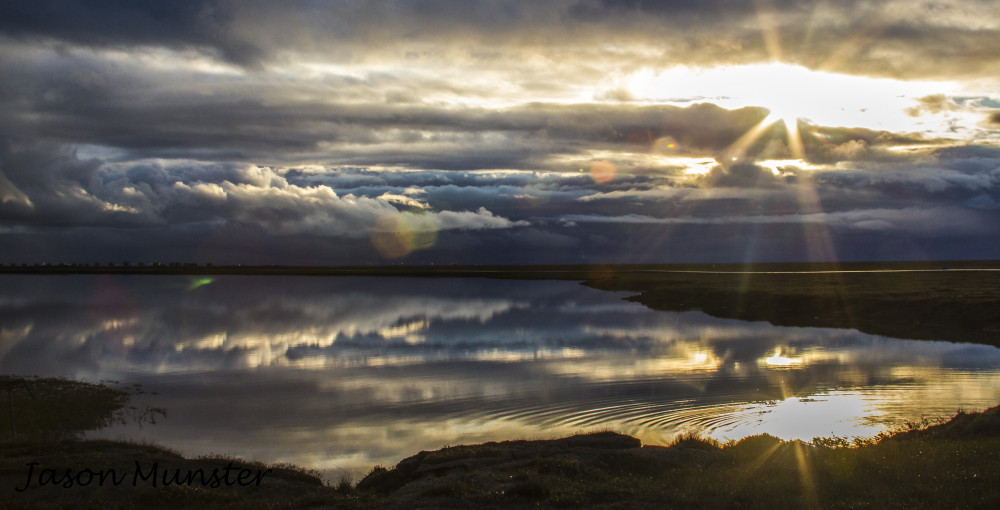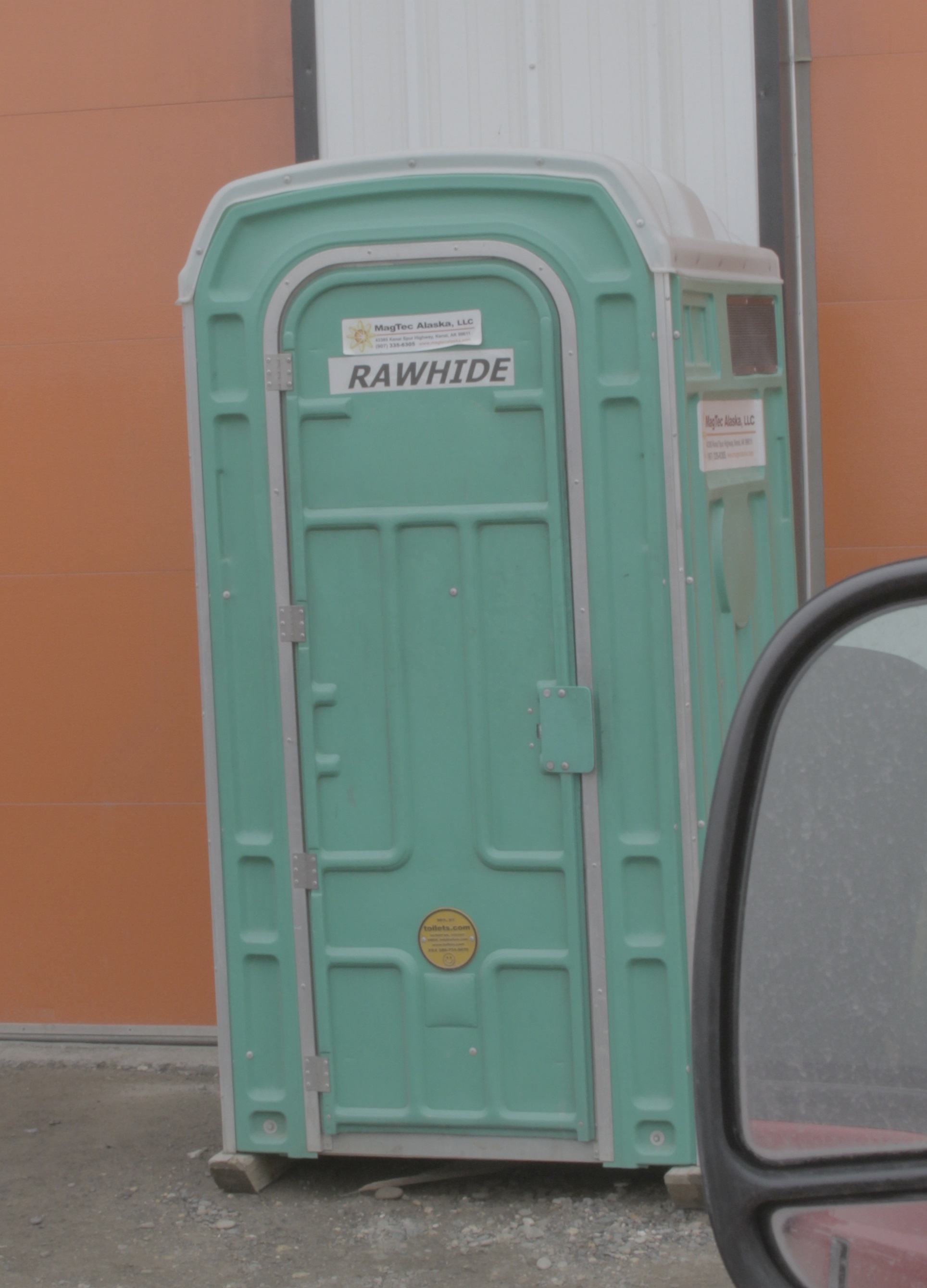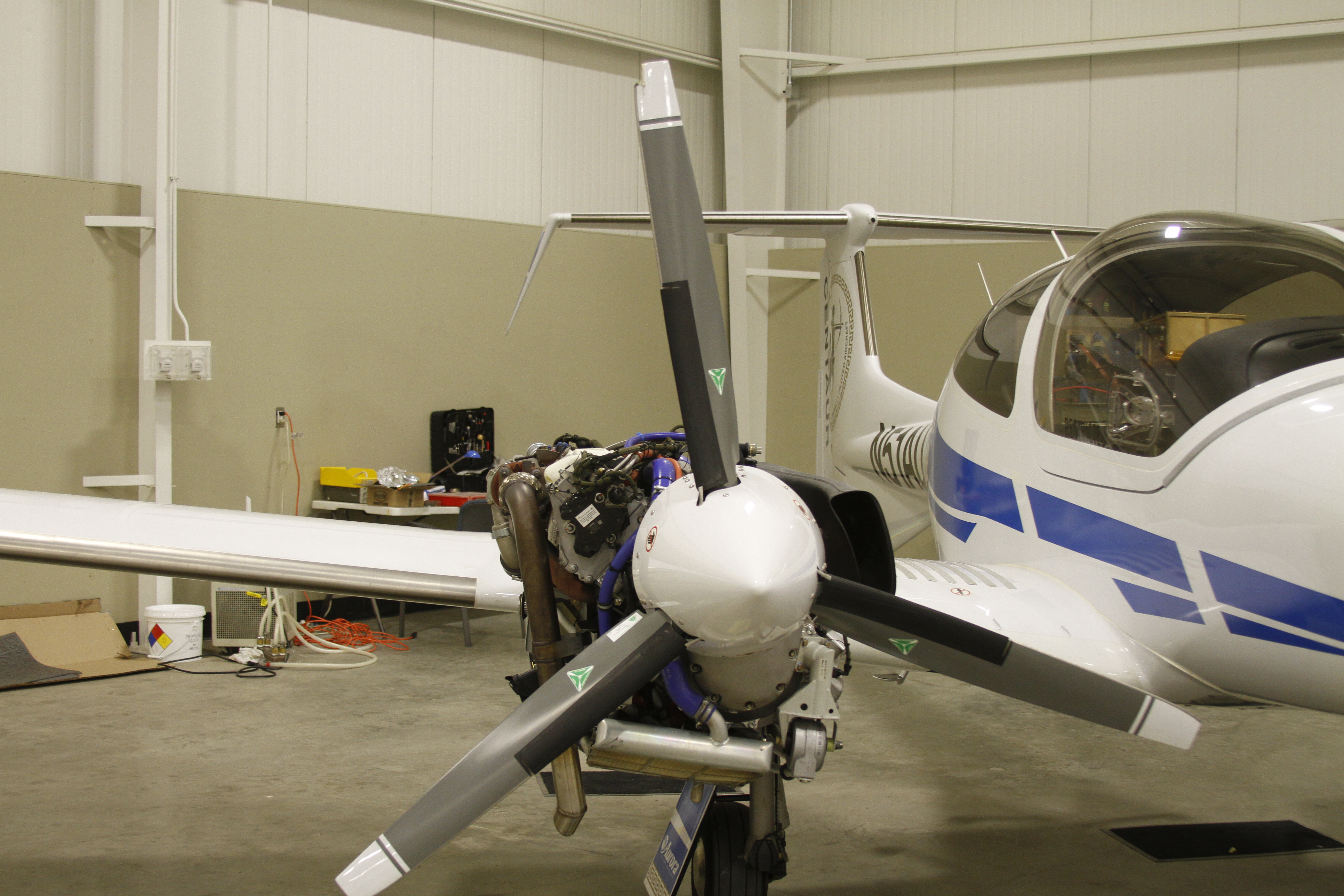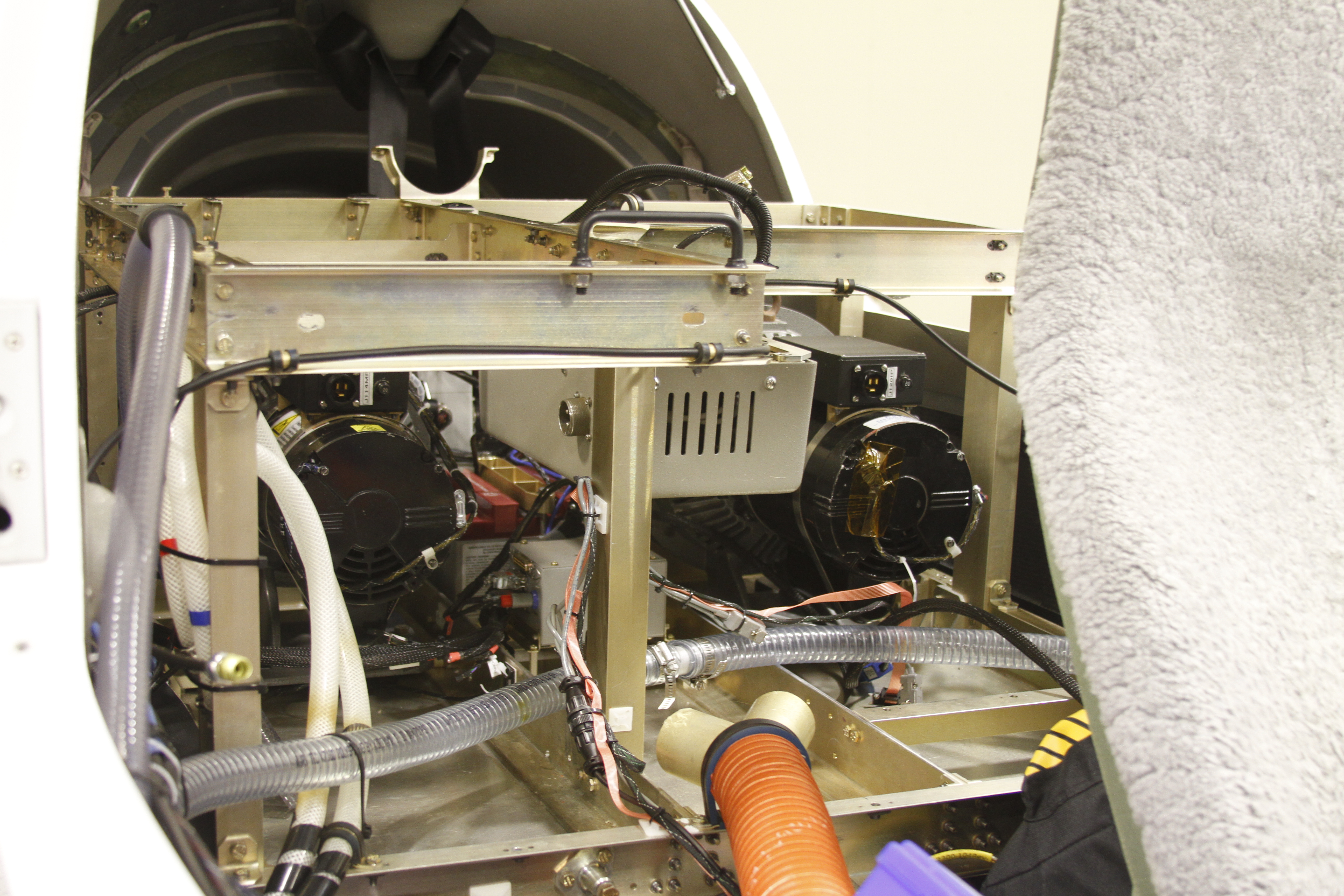Chris: "Jason, did you change the names on your blog to protect the innocent?"
Jason: "There are no innocent in Deadhorse. Only Victims."
You might want to skip down to the funny stories at the bottom if you don't give a crap about research.
Our plane
Our plane broke. There was damage to the propeller. It looks like we are losing 4 days of potential research because of that. It kinda sucks, cause we need that time to get more data. We should be back up on Sunday. But it is getting cold, and the ground is freezing. This means the ground will stop emitting stuff, and we pack up and head home.
The weather here is not friendly for flying an airplane 30 feet off the ground. There is always fog in the morning. We get out in some afternoons. There is a lot of time tweaking instruments.
For hot weather, like VA, we have a radiator with a cooling loop on a pump. We have a weight-limit issue on the airplane. We want to have two pumps, but we need that radiator to keep the pump cool. Since it is cold here, we took off the radiator and use ambient air to cool the pump. So we gained 80 lbs. of weight capacity, and installed the 2nd pump. Now we can do pressure control on both our flux cells independently, greatly increasing the precision, accuracy, and speed of our data.
The Good News
Our instrument is kicking ass. The CO2 detection axis is behaving nicely. It shows consistent performance over a wide range of temperatures. Most of the time, the thing samples ambient air from the front of the plane. Every 20 minutes we shut down this flow and begin with a calibration gas that we carry onboard. The instrument is rock-solid and gives the same answer from the cal gas throughout the flight.
(2017 update: The instrument did not behave as nicely as we thought, with some pretty serious temperature regulation issues).
What's special about this? It is a brand new instrument. It is one of the only CO2 instruments in the world that flushes and refreshes the air samples in it 30 times per second. It is precise to nearly 0.5 parts per million (1-σ, 1 second). That means if it samples two million particles in one second, it counts the number of CO2 particles pretty much exactly. It pretty much kicks ass.
Building in the Field
Our methane instrument got a steroid treatment, thanks to Mark Witinski at EOS Photonics (they are hiring infrared laser engineers and semiconductor physicists, in case you are wondering).
A week before departing, Mark let us burrow a fancy piece of equipment that he thought might be better than ours. It was about 10x better. Which is sufficient to make our methane instrument hands-down the best methane spectroscopy instrument. So of course we needed to re-design the entire detector side of the instrument, in the field, and then get parts machined and shipped, then assemble it here. There were a few errors, so we had to file, chip, and cut at the metal to make everything fit. But we built fully a third of an instrument in the field. Now we have so much signal that we literally need to attenuate it to record it. Luckily the noise and signal are attenuated by the same amount. So we just got a 10x reduction in noise. Thanks, Mark!
It's Getting Hot in Here
It's sometimes near freezing when the plane flies.
Wait, it's always near freezing when the plane flies. It's fucking cold up here.
Somehow two of our three lasers keep overheating anyways. You might guess that lasers have a tendency to do that. We have augmented both systems by doubling their cooling capacities. Also, all our systems have really badass wrapping of flame-proof Nomex (worn by fire-fighters and also our instruments) clad in a type of tape call Kapton (stable to 400C, or 752 degrees fahrenheit. Note that paper does not burn this hot). It takes a lot of cutting and measuring and such to makes these wrapping. We call them clothes, cause you have to cut holes for all the cables. Kinda like arm sleeves.
Anyways, it was too hot in their, so they took off all their clothes (heh, sorry.)
Research, Summing it Up
We have a tower set up to measure methane and CO2 emissions. Where it is measuring is emitting 10x the methane of a marsh in Virginia, and 25% more than has ever been measured from a tower in the Arctic. NOAA set up and manages this tower. These tower measurements are standard and considered reliable.
Our instruments are kicking butt. We are going to compare our airplane flux measurements to the tower measurements. We anticipate that they will agree. If they do, then our airplane flux measurements of methane works. Did I mention that our methane instrument has a precision of about 4 parts per billion? Airplane flux measurements will make it so we can measure a larger area of the Arctic and find out what the region is doing.
Now we only need the weather to cooperate.
It's Not Gay if it's Week 3
"It's not gay if it's week 3." -Everyone in Deadhorse.
Week 3 has come and gone with no major incidents except for everyone deciding that I am a giant teddy bear.
Some funny things:
We were watching Hercules in New York. For some reason around then I had referred to Chris as Testosterone. Claire decided after watching Hercules that we should instead give Chris the nickname of Testicles, pronounced like Hercules (testi-cleez). We were sober at the time (Remember, no drinking at MagTec).
"Jason, your blog has really gone downhill." -Testicles (remember to pronounce it right!)
In another event, we have plumbing to do as part of our research. We move lots of air through our instrument to measure the methane and CO2. So we plumb lines together to pull the air through. At one point, I needed to connect two tubes together. They were both tubes with a 1" inner diameter. The connector is called a quick-flange to nipple connector. Yep, the thing you put in a tube to connect it to other things is called a nipple. Stay with me here. Anyways, we were missing 2 of them. I was looking all over for them. Finally, I spotted them. I joyfully yell out, "I finally found the one inch nipples I was looking for!" Claire starts laughing. Then I realize that David, a post-doc in our group, had walked by just as I was pointing and yelling about having found one-inch nipples. It looked like I was pointing at him. It didn't exactly go over well.
These are some of the more tame stories and comments. When I get back, ask me about the joke about spicy food.
Upcoming in life
By my next post (which will come later than on Sunday), I will be home in Cambridge. I haven't seen the moon, stars, or the night sky in over a month. I miss trees and clear blue sky. I haven't had reliable internet in the same amount of time. It will be nice to get back and see my friends and my room-mate.
Thanks for reading!
- Jason Munster




Excellent installment. I'll see you and the crew soon. It's fantatstic that the instruments are working so well.